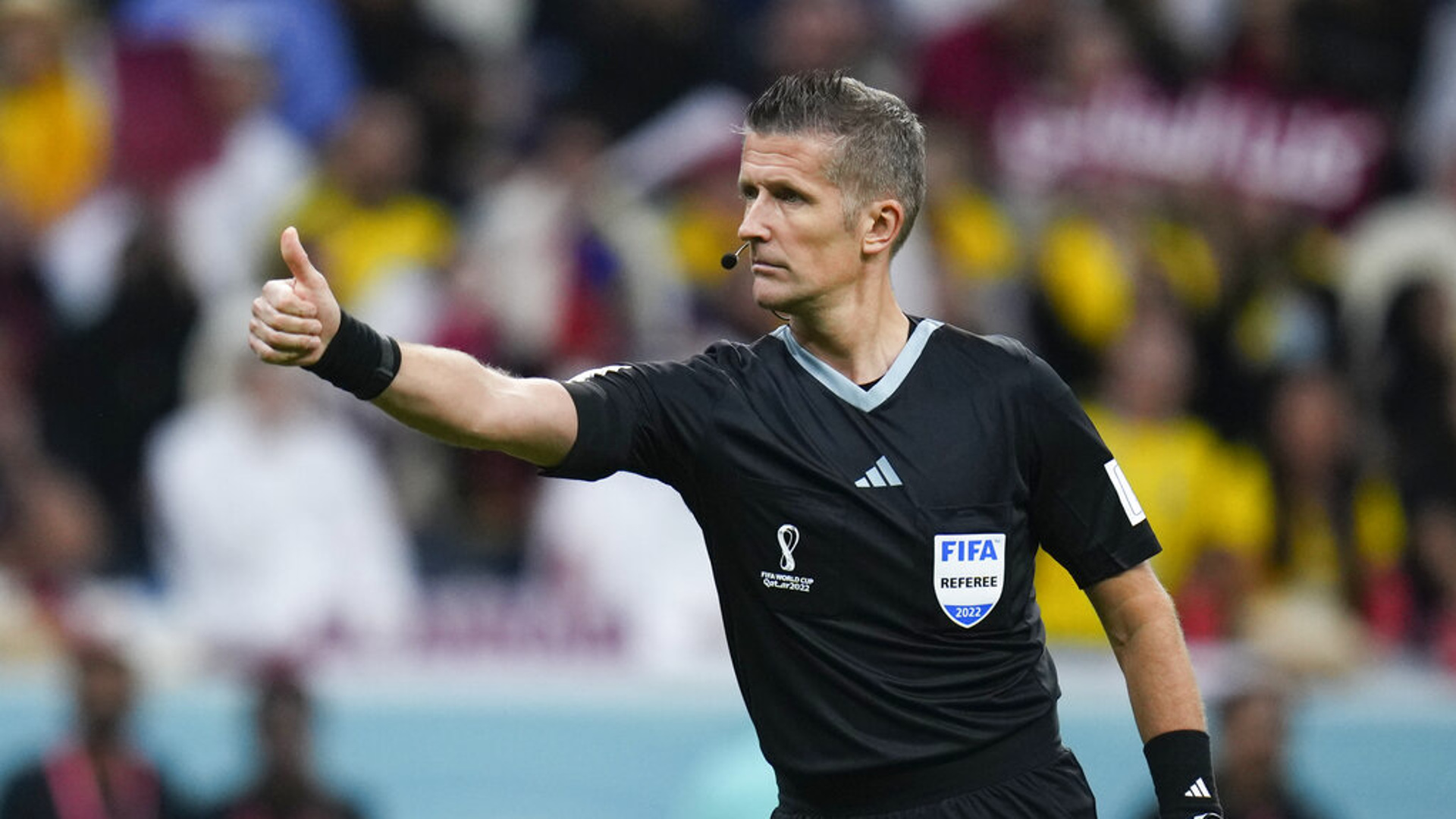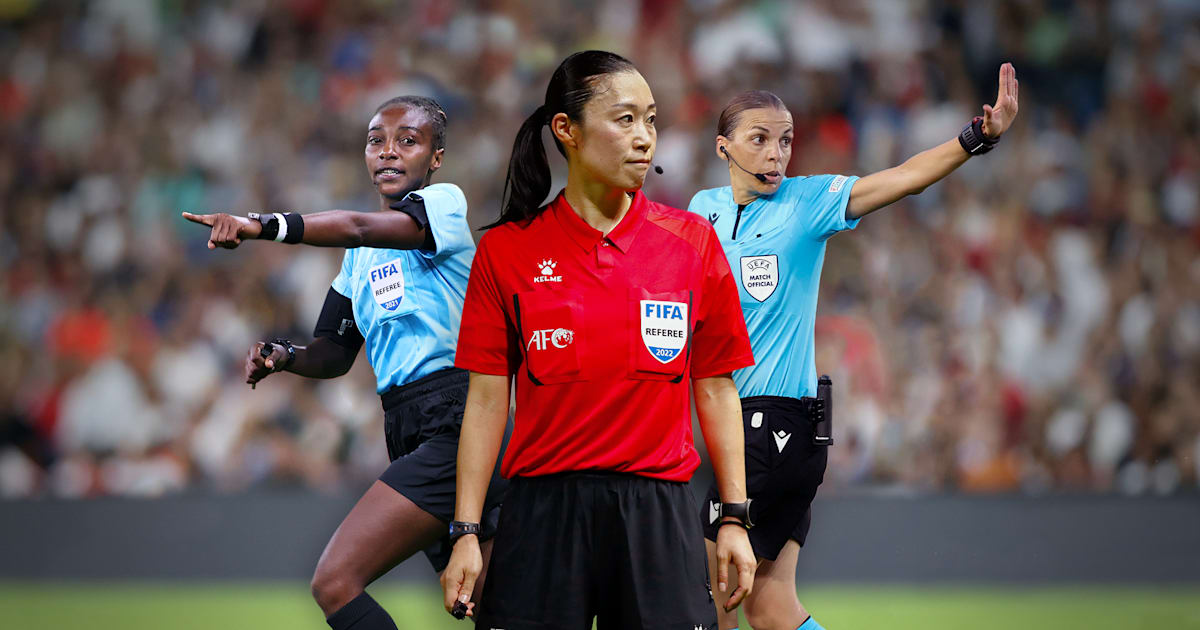Referee Performance Analysis: Usa Uruguay Referee

Usa uruguay referee – The referee’s performance in the match between USA and Uruguay was a topic of much discussion after the game. Some felt that the referee made several key errors that impacted the outcome of the match, while others defended the referee’s decisions, arguing that they were made in accordance with the laws of the game.
Di USA vs Uruguay match kontroversi kanggo bad refereeing. Tapi, referee no dari Uruguay. Dia dari Puerto Rico. Jadi, no fair ngomong Uruguay ngirim referee sogok buat menang. Soalnya, referee netral.
One of the most controversial decisions made by the referee was the awarding of a penalty to Uruguay in the second half. The referee ruled that USA defender John Brooks had fouled Uruguay striker Edinson Cavani inside the penalty area. However, replays showed that Brooks had clearly won the ball and that Cavani had dived to win the penalty. The penalty was converted by Uruguay, giving them a 2-1 lead.
The referee also made several other questionable decisions during the match. He failed to award a penalty to USA in the first half when Uruguay defender Diego Godin appeared to handle the ball inside the penalty area. He also allowed Uruguay to score a goal from an offside position in the second half.
Dis USA vs Uruguay referee don show say e no get eye at all. E for give Uruguay penalty for dat foul wey dem do Suarez. But e no do am. Na wa o. Anyway, you fit check storm beryl path to see how di storm dey move.
Di referee for dat match no sabi anything at all.
The referee’s performance had a significant impact on the outcome of the match. Uruguay’s victory was largely due to the two goals they scored from the penalty spot. The referee’s decision to award the first penalty was particularly controversial, as it gave Uruguay an unfair advantage.
Accuracy of the Referee’s Calls, Usa uruguay referee
The accuracy of the referee’s calls was a major issue in the match. Many of his decisions were questionable, and it is clear that he made several mistakes. The penalty awarded to Uruguay was a particularly egregious error, as it was clear that Brooks had won the ball. The referee also made several other incorrect calls, including failing to award a penalty to USA in the first half and allowing Uruguay to score a goal from an offside position.
Consistency of the Referee’s Calls
The consistency of the referee’s calls was also a problem. He seemed to apply the laws of the game differently to the two teams. For example, he was quick to award a penalty to Uruguay for a minor foul, but he failed to award a penalty to USA for a more serious foul. This inconsistency made it difficult for the players to understand what was expected of them.
Impact of the Referee’s Performance on the Overall Game
The referee’s performance had a significant impact on the overall game. His incorrect calls gave Uruguay an unfair advantage, and they ultimately led to Uruguay’s victory. The referee’s inconsistency also made it difficult for the players to play their best, as they were unsure of what was expected of them.
Controversial Incidents
The match between the United States and Uruguay was marred by several controversial incidents that sparked debate and discussion. These incidents had a significant impact on the outcome of the match and raised questions about the referee’s performance.
One of the most controversial incidents occurred in the first half when Uruguay’s Edinson Cavani was shown a red card for a tackle on United States’ Tim Weah. The tackle was deemed to be reckless and dangerous by the referee, but many fans and pundits felt that the decision was harsh and that Cavani should have been shown a yellow card instead.
Another controversial incident occurred in the second half when the United States was awarded a penalty kick after Uruguay’s Diego Godin was adjudged to have handled the ball in the penalty area. The penalty was converted by Christian Pulisic, and it proved to be the winning goal for the United States.
The decisions made by the referee in these incidents were met with mixed reactions. Some fans and pundits felt that the referee was correct in his decisions, while others felt that he was too harsh and that his decisions had a negative impact on the match.
The controversial incidents in the match between the United States and Uruguay highlighted the importance of fair and impartial refereeing. The decisions made by the referee can have a significant impact on the outcome of a match, and it is important that referees are able to make these decisions without fear or favor.
Impact on Teams
The controversial incidents in the match between the United States and Uruguay had a significant impact on both teams. The United States benefited from the referee’s decisions, as they were awarded a penalty kick that proved to be the winning goal. Uruguay, on the other hand, were disadvantaged by the referee’s decisions, as they lost a key player to a red card and conceded a penalty.
The controversial incidents also had a negative impact on the atmosphere of the match. The fans of both teams were angered by the referee’s decisions, and there were several instances of crowd trouble. The referee’s decisions also led to a lot of debate and discussion on social media, with many fans and pundits expressing their opinions on the matter.
Cultural Differences and Refereeing
The cultural differences between the USA and Uruguay may have influenced the referee’s decisions in the match. For example, in the USA, there is a strong emphasis on individualism and personal responsibility, while in Uruguay, there is a greater emphasis on collectivism and group responsibility.
These cultural differences can lead to different expectations about how the game should be played. In the USA, players may be more likely to focus on their own individual performance, while in Uruguay, players may be more likely to focus on the team’s performance as a whole.
Impact of Cultural Norms on Refereeing
Cultural norms and expectations can impact refereeing in international matches in several ways. For example, in some cultures, it is considered acceptable for players to engage in physical contact with the referee, while in other cultures, this is considered disrespectful.
Referees need to be aware of the cultural norms and expectations of the teams they are officiating in order to make fair and impartial decisions.
Importance of Cultural Sensitivity in Refereeing
Cultural sensitivity is important in refereeing because it allows referees to understand and respect the different cultural backgrounds of the teams they are officiating.
By being culturally sensitive, referees can create a more fair and enjoyable environment for all involved.
